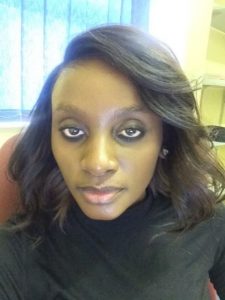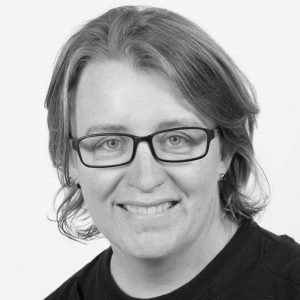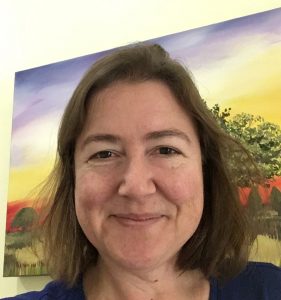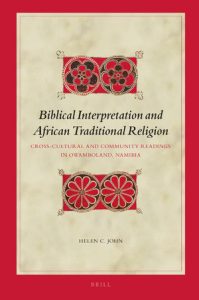[pdf-embedder url=”http://blogs.exeter.ac.uk/disabilitynamibia/files/2020/11/PDF-Dec-Workshop-FINAL.pdf” title=”PDF Dec Workshop (FINAL)”]
December 2020 Workshop on Disability in Namibia
Disability in Namibia: Religious and Cultural Perspectives
3rd – 4th December 2020
Coinciding with the United Nations International Day of Persons with Disabilities (3rd December 2020), The University of Exeter (UK) and the University of Namibia will be hosting a virtual workshop to explore religious and cultural perspectives on disability in Namibia. We look forward to hearing from speakers from a range of perspectives: People with Disabilities, Organisations of Persons with Disabilities, the Government of the Republic of Namibia, academic researchers, church leaders, UN agencies, NGOs, and more, to explore the situation on the ground in Namibia and the wider Southern African context. The (provisional) full programme for the workshop is below.
The ‘Disability in Namibia: Religious and Cultural Perspectives’ Project
The ‘Disability in Namibia: Religious and Cultural Perspectives’ project is a partnership between the Universities of Exeter and Namibia (UNAM), in collaboration with the National Federation of People with Disabilities in Namibia (NFPDN) and the Evangelical Lutheran Church in Namibia (ELCIN). Our work is funded by the UK’s Arts and Humanities Research Council. We are seeking to build a broad and diverse network to explore the impact of religion and culture on experiences of disability in Namibia. We want to consider the ways in which religion and culture can have negative impacts on people’s experiences and community attitudes, as well as the possible positive roles that religion and culture might play in challenging disability marginalisation.
Workshop Focus and Questions
The focus of our workshop is the influence of religion and culture on experiences of, and attitudes to, people with disabilities in Namibia. This is an area that has not been widely considered and in which research is lacking. However, we also recognise that other issues (gender, social location, politics, economics) intersect with disability issues, so we need to consider the context as a whole. At this event, we will particularly be considering the following questions:
- What effects do Christianity, the Bible, and the church community/leadership have on the experiences of people with disabilities in Namibia?
- What effects do local cultures have on the experiences of people with disabilities in Namibia?
- How can religion and culture contribute to challenging stigma and discrimination regarding disability and bring about a more inclusive society?
Taking Part
This is a free event and it is open to all. To sign up to the email distribution list and receive the Zoom invitation, please email your details to H.C.John@exeter.ac.uk. Please feel free to distribute details of the event to colleagues and contacts who might be interested in attending. The more diverse the experiences/research interests of the participants, the better!
Accessibility
Sign language interpretation will be available at the Zoom meeting for all presentations and discussions. If you have concerns about internet access or other access needs, please email H.C.John@exeter.ac.uk and we will make arrangements to facilitate your involvement. We would like to maximise dialogue, interpersonal engagement, and accessibility. Speakers are therefore kindly requested not to use presentation software such as PowerPoint slides.
| Day 1: Thursday 3rd December Windhoek Time (GMT +2) |
10:00 Welcome from the Exeter-UNAM Project Lead – Prof Louise Lawrence (Exeter)
10:15 Ice-breaker – bring an object or discussion piece to introduce your Experience of Disability/Disability issues
11:15 Break
11:30 Roundtable discussion of Disability Experiences, Statistics, and Activism led by Mr Daniel Trum, Chairperson of the National Federation of People with Disabilities in Namibia. He will be joined by Mr David Hughes (NFPDN), Ms Elizabeth Namwandi (Namibian Organisation for Youth with Disabilities) and Mr Moses Nghipandulwa (National Federation for the Visually Impaired). Q&A.
12:30 Lunch break
13:30 Disability and Religion – Stigma and Marginalisation. Prof Louise Lawrence (Exeter) will discuss ‘Ableism and the Bible’. Prof Charlene Van Der Walt (KwaZulu-Natal) will demonstrate how the Bible can be used to tackle marginalisation through an approach called Contextual Bible Study. Q&A.
14:30 Break
14:45 Disability and Culture. Dr Cynthy Haihambo (UNAM) will discuss her research on disability and culture in Southern African contexts. Dr Helen John (Exeter) will discuss her research on attitudes to disability in Owambo proverbs. Q&A.
15:45 Break
16:00 KEYNOTE ADDRESS by Honourable Alexia Manombe-Ncube, Deputy Minister: Ministry of Gender Equality, Poverty Eradication and Social Welfare, responsible for Disability Affairs, in the Presidency of the Republic of Namibia. Q&A.
17:00 Closing remarks and informal discussion.
17:30 End.
| Day 2: Friday 4th December Windhoek Time (GMT +2) |
10:00 Welcome from the Exeter-UNAM Project Lead – Prof Louise Lawrence (Exeter)
10:15 Disability, Health and Development – Dr Elina Amadhila (UNAM) and Prof Gert Van Rooy (UNAM) will discuss how religious and cultural impacts relate to health and development. Q&A.
11:15 Break
11:30 Roundtable discussion on Promoting Inclusivity – Dr Aune Victor (UNICEF), Ms Natasha Maritz (UNDP), Ms Loide Amkongo (UNFPA). Q&A.
12:30 Lunch break
13:30 Challenging Disability Marginalisation through Contextual Bible Study. Prof Louise Lawrence (Exeter) will lead a contextual Bible study to demonstrate how biblical texts can be used to challenge discriminatory attitudes and promote inclusion. Q&A.
14:30 Break
14:45 Disability, Religion and Culture in Southern Africa: Learning from Other Contexts. Dr Sinenhlanhla Chisale (Midlands State University, Zimbabwe) will discuss her research on disability in Zimbabwe. Dr Masauso Chirwa (University of Zambia) will discuss his research on disability in Zambia. Prof Charlene Van Der Walt (KwaZulu-Natal) will discuss her research on disability, gender and embodiment in South Africa. Q&A.
15:45 Break
16:00 Closing remarks and informal discussion.
17:00 End.
[pdf-embedder url=”http://blogs.exeter.ac.uk/disabilitynamibia/files/2020/11/PDF-Dec-Workshop-FINAL.pdf” title=”PDF Dec Workshop (FINAL)”]
Network Member Profile: Dr Sinenhlanhla Chisale
Welcome to the network, Dr Sinenhlanhla Chisale of Midlands State University, Zimbabwe – we look forward to hearing about your work and the Zimbabwean context in our December workshop!
[pdf-embedder url=”http://blogs.exeter.ac.uk/disabilitynamibia/files/2020/11/Sinenhlanhla-Chisale-Blog-Profile.pdf” title=”Sinenhlanhla Chisale Blog Profile”]
Network Member Profile: Dr Elina Amadhila
Here is another member profile for you, showing what diverse expertise the Disability in Namibia network has!

It is great to be working with Dr Elina Amadhila of the University of Namibia, who is a multidisciplinary researcher with an undergraduate degree in Business Administration and a Master of Arts in research (University of Namibia), as well as a PhD in Development Finance (Stellenbosch University). Elina has considerable experience in disability studies, having worked as research assistant and post-graduate research fellow in the EquitAble ‘collaborative’ project which focused on addressing the situation of people with disabilities and other marginalised or vulnerable groups with regards to access and quality of health services.
Elina’s role in the Disability in Namibia project is linking health to the aspect of development and contrasting the experiences from the global south (where I am from) to those in the global north (where collaborative partners are from). We are looking forward to hearing her talk about her perspectives on disability in our workshop in December (see our Workshop 3 page for further details).
Professor Louise Lawrence Lecture on the Disability in Namibia project
In October, Professor Louise Lawrence (University of Exeter) gave a lecture entitled ‘Compassionate Research and Curricula? The Bible, Disability, and Cognitive [In-] Justice’ which showcased our research project in Namibia.
Professor Lawrence talked about how the academy, research and teaching has been shaped by certain (privileged) perspectives and (able) bodies, and how these can be challenged and reimagined more inclusively.
[pdf-embedder url=”http://blogs.exeter.ac.uk/disabilitynamibia/files/2020/10/Lawrence-Global-Lecture.pdf” title=”Lawrence Global Lecture”]
Disability in Namibia: December 2020 Workshop
Join us at a ‘Disability in Namibia’ virtual workshop on 3rd and 4th December 2020.
Due to the ongoing Coronavirus situation, we had to postpone our planned workshops in April and July 2020, which were due to bring together academics, activists, and representatives from the Government of the Republic of Namibia (GRN) and the Evangelical Lutheran Church in Namibia (ELCIN). We continue to adjust our project activities to accommodate the ‘new normal’ in which we all find ourselves. We have therefore decided to run a 2-day virtual workshop in December 2020, which will deliver – albeit in a different format – the opportunities for networking and the sharing of ideas that we had envisaged for April and July. We therefore invite you to join us on 3rd and 4th December 2020 at a Zoom event hosted by the University of Exeter.
This virtual workshop will be free to attend and offers the chance to hear from disability activists in Namibia, scholars from Namibia, South Africa, Zimbabwe, Zambia and the UK, as well as disability stakeholders working in governmental, legal, and development settings. A variety of interactive sessions will give participants the chance to consider disability issues from multiple perspectives and multiple geographical contexts, and to add their voices to the conversation.
Further details will be available here soon.
If you would like to attend the workshop, or would like to get in touch with the project team, please email Dr Helen John: H.C.John@exeter.ac.uk
Professor Louise Lawrence Lecture on ‘Disability in Namibia’
Our Project Leader, Professor Louise Lawrence, will be delivering a lecture on the Disability in Namibia project on Tuesday 13th October at 16:30 (GMT) as part of a new lecture series on the role of humanities in contemporary global crises. This is a free event, open to all. Do sign up and find out more about the project.
Visit the University of Exeter website for more details and to sign up to this free event:
https://www.exeter.ac.uk/news/research/title_820048_en.html
The details below are taken from the website:
Professor Louise Lawrence, from the University of Exeter, will discuss “Compassionate Research and Curricula? The Bible, Disability, and Cognitive [In-] Justice”. Showcasing her research project in Namibia, Professor Lawrence will speak about how the academy, and its research and teaching, has been shaped by certain (privileged) perspectives and (able) bodies, and how these can be challenged and reimagined more inclusively.
A new University of Exeter lecture series will examine the role of humanities experts in tackling global crises, including health, the climate emergency and racial injustice.
The online events, free and open to the public, will also showcase discussions on how humanities research can help universities better conduct their global activities and be agents of positive change.
Academics from around the world will bring their varied disciplinary perspectives to modern global events: from the ‘long view’ of history, to compassion-based understanding of human needs, to promoting better intercultural understanding. Amidst so much upheaval, universities can play a leading role in the world but they also need to reckon honestly with some of their imperfections. This forum provides a creative space for such a reappraisal.
Professor Melissa Percival, Associate Dean Global for the College of Humanities, who is organising the events, said: “We are looking forward to hearing from humanities experts who are leaders in their fields about how their disciplines are playing a role in community-building, strategy, partnership and engagement.
“These should be fascinating and important discussions which will help us all reflect on the extraordinary events of this year, and the role of the humanities now and in the future.”
Sessions are hosted by the University of Exeter’s Institute for Cultural Enquiry and will be held on Zoom.
Sign up for the events at: https://www.eventbrite.co.uk/e/global-universities-global-challenges-perspectives-from-the-humanities-tickets-123201112845
Dr Charlene van der Walt lecture at Bridging Gaps symposium
(Associate Professor of Gender and Religion) Dr Charlene van der Walt, a Disability in Namibia project partner at the University of KwaZulu-Natal, will be delivering a lecture at the Bridging Gaps symposium (Faculty of Religion and Theology, Vrije Universiteit Amsterdam). The symposium (16-17 October 2020) focuses on contextual theology and contextual Bible study across multiple continents. It promises to be a varied and fascinating series of lectures. The 2-day virtual symposium is free to attend and you can sign up by emailing bridging.gaps@vu.nl

View Dr Charlene van der Walt’s profile here:
Full details of the symposium are available on the Vrije Universiteit website, which gives the following information:
https://frt.vu.nl/en/news-agenda/agenda/2020/okt-dec/201016-symposium-building-bridges.aspx
In 1994, the Bridging Gaps program (formerly Breuken en Bruggen or Puentos y Roturas) started. The program aimed to facilitate intercultural and ecumenical exchange among participants from the Global South, and to foster contextual theology. Through contextual Bible studies, lectures on hermeneutics, individual research, and intercontextual exchange, the participants learned how context influences one’s understanding of theology, and how context can enrich theology. 25 years later, over 250 students from 40 countries, belonging to various denominations, have participated in the program. It is time to celebrate and harvest the fruits!
The symposium aims to celebrate and share some of the outstanding contributions of former participants to the field of contextual theology. In a two-day program, lectures on theology in the context of forced migration, gender injustice, ecological crises, and economic injustices will be given by former participants and others affiliated with the program. Among the main speakers are
- Lady Mandalika, PhD candidate in Old Testament Studies, Vrije Universiteit
- Mary-Luz Reyes Bejarano, Professor at the Corporación Universidad Reformada in Barranquilla (Colombia)
- de Rt. Rev Manuel Ernesto, Bishop of the Anglican Diocese of Nampula (Mozambique)
- dr.Darío Barolín, executive secretary of the Latin America Alliance of Presbyterian and Reformed Churches (AIRPAL)
- dr.Charlene van der Walt, associate professor Gender and Religion at the University of KwaZulu-Natal (South Africa)
Since this is a digital gathering, we are able to welcome speakers and participants from all over the world. The schedule of the first day of the symposium is designed to include participants from time zones in the Americas, Africa and Europe. The schedule of the second day of the symposium is designed to include participants from time zones in Asia, Africa and Europe.
The symposium will take place on the 16th and 17th of October via Zoom. The Zoom invitation will be sent to all registered attendees. Please register with your name, email address and the day(s) you like to participate via bridging.gaps@vu.nl. Take a look at the full program.
The Bridging Gaps program is sponsored by Kerk in Actie, VUvereniging, Stichting Sormani Fonds, Nederlands Luthers Genootschap, Stichting Catherina Halkes Fonds, Doopsgezind Seminarium, Remonstrans Seminarium, and Baptistenseminarium.
Students at the University of Kwalzulu-Natal, have produced a powerful piece on the increase in Gender-Based Violence during the South-African COVID 19 lockdown.
GRH Cohort Video engaging GBV during COVID19 Lockdown South-Africa
The 2020 Gender and Religion Master Cohort took it upon themselves to create this short video, as they were collectively moved by the dramatic increase in Gender-Based Violence during the South African COVID19 lockdown. The video aims to create awareness of GBV in intimate spaces and also asks critical questions regarding the involvement of faith communities in the process of addressing the issue. Most profoundly the video offers a virtual community of care for those struggling due to the life-denying realities created by situations of abuse, intimidation, and violence. If you are in need of care, support, or intervention due to GBV during the Covid19 pandemic in South Africa please make use of the services offered by The Gender-Based Violence Command Centre (GBVCC). The Centre operates a National, 24hr/7days-a-week Call Centre facility. The Centre operates an Emergency Line number – 0800 428 428. This is supported by a USSD, “please call me” facility: *120*7867#. A Skype Line ‘Helpme GBV’ for members of the deaf community also exists. (Add ‘Helpme GBV’ to your Skype contacts). An SMS Based Line 31531 for persons with disabilities (SMS ‘help’ to 31531) also exists. The Centre is able to refer calls directly to SAPS (10111) and field Social Workers who respond to victims of GBV.
Posted by Religion and Theology UKZN Pietermaritzburg on Monday, 8 June 2020
Network Member Profile: Helen John
In this post, we hear from one of the University of Exeter project team members, Helen John:

I arrived in Namibia from the UK in mid-March and will be here throughout our ‘Disability in Namibia’ networking project, which is now extended until the end of May 2021. I’ve been visiting Namibia since 1997 and have been doing research here for the past eight years, so I’m delighted to be back and that this project is up and running. This is an excellent opportunity for the University of Exeter to collaborate with the University of Namibia (UNAM) and to build links with universities in neighbouring countries. Before we went into Coronavirus lockdown, I was lucky enough to meet the UNAM team, and it was great to get together with our new colleagues face-to-face and to hear about each other’s interests and expertise. It’s clear that there are so many ways in which this network and our Disability in Namibia project can benefit from such diversity across all of our specialisms – health sciences, religious studies, development, economics, biblical studies, education, gender studies – the list goes on!
My focus areas in connection with this project are Contextual Bible Study and Owambo cultures in Namibia’s North-Central region. For me, that means interpreting New Testament texts with community groups in Owambo and exploring with participants the relationship between local culture and interpretations of the Bible. Particular topics that I focus on are embodiment, personhood and gender. my PhD fieldwork was also undertaken here: https://brill.com/view/title/54150

I am now based in Owambo and am focusing on perceptions of disability and attitudes to disability in local culture. Having done previous research into illness and healing in this area, the move towards disability issues is a really interesting progression. It seems to me that properly understanding religious and cultural responses to disability is key to eradicating marginalisation of people living with disabilities. Later in the year, I hope to convene a rotation of community groups (women, men, children) to generate discussions on disability themes – stigma, contagion, cure, inclusion – and to gauge attitudes to disability in general as well as in its particular forms. I will also be seeking interviews with people with disabilities, disability activists and church representatives to get a sense of the wider landscape of disability in the North of the country.
I am really looking forward to meeting members of the network at our December workshop (which we hope will be an amalgamation of the July and December meetings) and to further establishing our collaborations – we are delighted to have network members already in Namibia, the UK, South Africa, Zimbabwe and Zambia. Let’s hope that we can add more scholars and stakeholders to the list both within and beyond those borders.
In the meantime, stay safe and well! Best wishes, Helen
